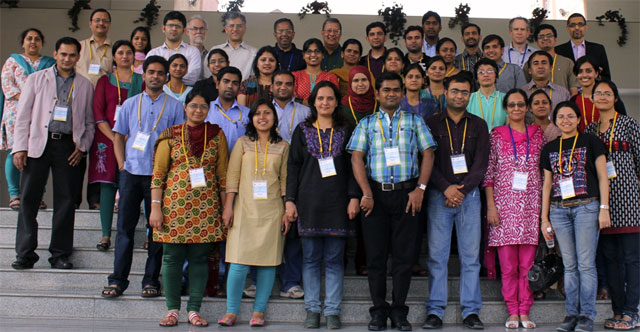New Delhi, India,
Organizer: Narinder Mehra
Recent advances in immunology have revolutionized developments in contemporary medicine and biology. Discoveries in several immune based novel molecules of disease susceptibility and/or progression have created a sense of confidence among researchers and the emphasis is now on translational aspects of immunology in health and disease. This has started a new wave whereby knowledge generated can be successfully applied for developing improved therapeutics in humans. The immunopathological mechanisms underlying diseases like asthma, allergies, autoimmune disorders, immunodeficiencies and infections need be better-understood and new approaches for vaccine design developed. The arena of vaccine design now includes not only prophylactic or curative vaccines but also those that can significantly delay disease progression. Recent developments in immunodiagnostics, nanotechnology, mucosal immunology, host sensitization in organ transplantation and issues related to allorecognition in hematopoietic stem cell transplantation have attracted significant attention.
These issues and their applications in Medicine and Biology were discussed thoroughly in our course, which was sponsored by the Federation of Immunological Societies of Asia Oceania (FIMSA) with an active support from the Indian Immunology Society (IIS) and IUIS. Help is also acknowledged from the Indian Council of Medical Research, the Council of Scientific and Industrial Research, the Department of Biotechnology and the Department of Health Research. The event represented the first “residence course” in the FIMSA/IUIS/IIS series with primary focus on basic and translational aspects of immunology.
Venue: The course was organized at the sprawling campus of the Institute of Defense Studies and Analyses (IDSA) in New Delhi from immediately following the 5th FIMSA congress of Immunology. This venue was considered most appropriate because of its beautiful and lush green campus, availability of well-furnished accommodation and excellent meeting/conference halls. Accommodation was offered to all participants including the course faculty at the venue itself so as to provide a congenial environment of informal interaction and exchanges. The auditorium is excellently designed for a capacity of over 120 with great audio visual facility enabling each participant to have a mike right on his/her desk. This proved to be of great help for a course such as this because the students could take an active part in the discussions.
Course Faculty: Since the course was held immediately following the FIMSA 2012 Congress, this provided us an opportunity to request some of the visiting scientists and congress speakers to teach in the course. The response was overwhelming and finally a set of 11 senior scientists were selected as the ‘course faculty’ based on their expertise in specific aspects of the subject (Professors Abul Abbas, Guna Karupiah, Jonathan Sprent, Nicholas King, Vijay Kuchroo, Miles Davenport, Rose Ffrench, Cindy Ma, Ram Raj Singh and Narinder Mehra). Speakers were sponsored by the Australasian Society for Immunology and the IUIS Clinical Immunology committee.
Participants: The course included fresh PhD students and Postdoctoral fellows/young scientists as participants, selected by a committee strictly on merit and taking into consideration their research experience and plans for the future. A total of 80 participants were selected of which 65 were finally able to attend the course. Although most of these were from various states of India, special efforts were made to include participants from the neighboring countries and member societies of FIMSA. Besides India, the course participants included those from Nigeria (Arinola OG), Thailand (Supansa Pata) and Germany (Karan Kohli). The selected participants were required to make a mandatory presentation on their current and/or future areas of research either as a poster or oral presentation. Accordingly 17 participants made an oral presentation of 10 minutes each and the remaining put up posters. Two awards were given for best oral presentations (Jovvian George from Chennai and Mohammad Amir from Chandigarh), two for best poster presentations (Mahesh Kumar from Bangalore and Arghya Das from Hyderabad), and two for best interactive participants (Gaurav Sharma from New Delhi and Lekha Goyal from Chandigarh). All awardees received a cash prize of INR 5000.
Course Report/Highlights: The course provided the participants with an intense and thorough exposure to basic immunology, autoimmunity, infectious disease and cancer immunology, vaccine development and monitoring strategies. A variety of interactive teaching methods were employed each day to enhance learning, such as lectures with open discussions, oral and poster research seminar presentations by participants, individual group discussion meetings with the faculty during pre lunch, lunch and post lunch refreshments. The content in each session was designed to be integrated and to build upon a sound knowledge base in immunology. It was especially important to cover the basic aspects of Immunology before focusing on translational aspects. The latter included discussions on infectious disease immunology, immunodeficiencies and vaccine development strategies, to help participants grasp the subject better. Following the course, the study material including all slides presented by the faculty and discussed during the course, was circulated among the participants.







